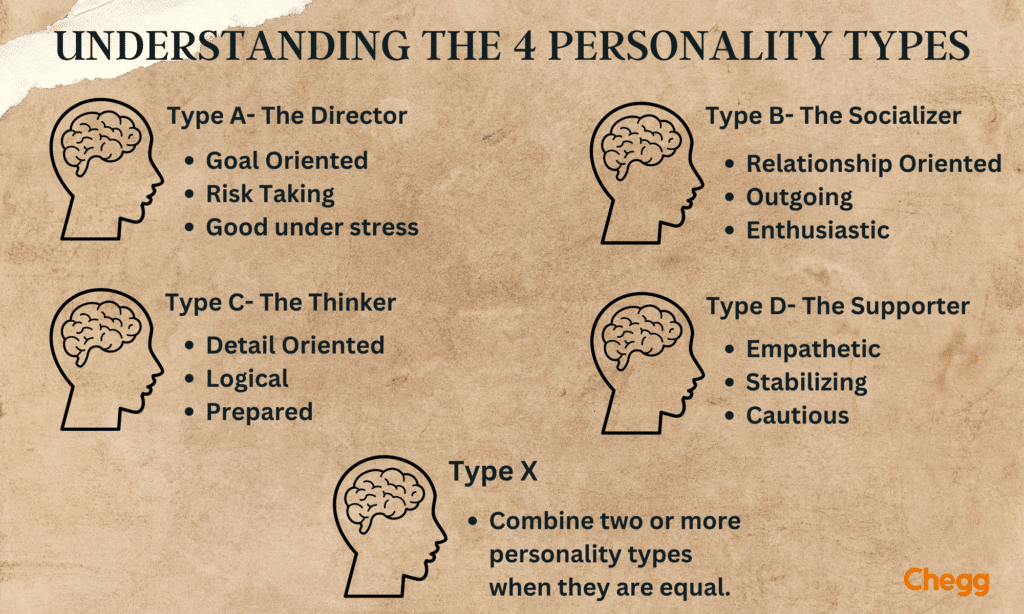
Quick Summary
Table of Contents
Ever wonder why some people effortlessly shine while others fade into the background? The secret is personality development — the art of refining your traits, behavior, and communication to stand out. In today’s fast-paced world, a strong personality can unlock career success, better relationships, and unshakable confidence. By improving how you think, act, and present yourself, you can transform your life — starting now.
Personality development is like giving your inner self a makeover. It’s about improving who you are, how you behave, and how you interact with others. Just as we take care of our physical health, personality development is about taking care of our mental and emotional health.
In simple words, personality development means:
Understanding the importance of personality development helps individuals unlock their true potential, improve social interactions, and adapt to challenging situations effectively. For Indians, personality development is super important because it helps us balance our rich cultural values with the demands of the modern world
Personality development theories reveal how genetics, experiences, and social interactions shape who we are. From biological traits to life experiences and thoughts, these theories show personality evolves through a mix of nature and nurture. Understanding them helps us see how personality grows and changes over time.
Below are some of the most prominent theories of personality development:
Sigmund Freud‘s psychoanalytic theory is one of the earliest and most influential theories of personality development. According to Freud, personality is shaped by unconscious motives and conflicts, which are rooted in childhood experiences.
While some aspects of Freud’s theory are considered outdated, the idea that early childhood experiences impact personality development remains widely accepted in modern psychology.
Erik Erikson’s expanded on Freud’s work by focusing on the social and psychological aspects of personality development. Erikson proposed eight stages of psychosocial development, each characterized by a specific conflict that must be resolved for healthy personality development.
Erikson’s theory is widely respected for its emphasis on social and cultural influences and its application to the entire human lifespan.
Trait theory, pioneered by Gordon Allport focuses on identifying and measuring individual personality characteristics, known as traits. Allport believed that personality is composed of a unique combination of traits that define how a person behaves.
Trait theory remains influential, particularly in the development of personality assessments like the Big Five personality traits, which include openness, conscientiousness, extraversion, agreeableness, and neuroticism.
Albert Bandura’s social cognitive theory emphasizes the role of observational learning, social experiences, and cognitive processes in the development of personality. According to Bandura, people learn behaviors by observing others and imitating them.
Social cognitive theory is widely applied in educational and therapeutic settings, highlighting the importance of social environments in shaping personality.
Humanistic theories focus on the inherent goodness of people and their natural tendency toward self-actualization. Carl Rogers and Abraham Maslow are two of the most prominent figures in this area.
Humanistic theories are foundational in positive psychology and counseling, emphasizing personal growth and self-improvement.
Behaviorist theories, led by B.F. Skinner focuses on observable behaviors rather than internal mental states. Skinner believed that personality development is a result of environmental influences and learning.
Behaviorist principles are widely used in behavior modification programs, educational settings, and therapies for changing specific behaviors.
Each of these theories helps us understand different parts of personality development. Some focus on early childhood, some on lifelong growth, and some on how we learn from others. By learning about these theories, students can better understand themselves and others, helping them in their studies and future careers.

There are many different types of personalities, and they can vary drastically between individuals. Some of the more common types include introverts, extroverts, optimists, pessimists, logical thinkers, emotional thinkers, and loyalists.
Each of these types of personalities has its unique strengths and weaknesses and can help people understand their behavior and motivations. Understanding personality types can be very helpful in finding suitable career paths, forming meaningful relationships, and creating successful teams. Let’s understand through the 4 broad categories:
Here are some of the main benefits of personality development that you can experience in your everyday life:
| Benefit | Description |
|---|---|
| Boosts Confidence | Personality development helps you become more confident in yourself, making you better prepared for various life challenges. |
| Improves Communication Skills | It enhances your ability to communicate effectively, both verbally and non-verbally, which is essential for building relationships and working in teams. |
| Strengthens Leadership Skills | You develop qualities such as decision-making, problem-solving, and the ability to inspire others, which are important traits of good leaders. |
| Develops Emotional Intelligence | It helps you understand and manage your own emotions while empathizing with others, making your interactions more positive and meaningful. |
| Encourages Positive Attitude | A positive attitude can transform the way you view and respond to challenges, improving your mental health and relationships. |
By improving these areas, personality development ensures that you not only grow as an individual but also excel in your personal, academic, and professional life.
Several factors can shape and influence personality development:
To improve your personality, you need to focus on developing a few key skills. Here are some important skills that contribute to personality development:
Confidence is the foundation of personality development. When you believe in yourself, others will naturally believe in you too. To build confidence:
Being able to communicate clearly and effectively is a crucial skill in both personal and professional settings. Good communication involves:
Emotional intelligence refers to your ability to understand and manage your own emotions, as well as those of others. To improve your EQ:
A good leader motivates others, makes quick decisions, and solves problems effectively. To develop leadership skills:
Managing your time effectively is an essential part of personality development. It shows that you are organized, responsible, and capable of handling multiple tasks. To improve your time management:
Personality development is a journey, not a destination. Follow these simple steps to start working on your personality:
Before you begin developing your personality, you need to understand your current strengths and weaknesses. Self-assessment helps you identify areas that need improvement. Here’s how to perform a self-assessment:
Once you know your strengths and weaknesses, set specific goals for improvement. Your goals should be:
Your habits shape your personality over time. Cultivating good habits can make a big difference in your personal growth. Some habits to develop include:
Interacting with others is a vital part of personality development. Developing good social skills helps you build better relationships. You can:
Never stop learning! Personal growth is a continuous process, and you should always look for opportunities to learn something new. Here are some ways to keep learning:
Now that we understand what personality development is and why it matters, it’s time to look at some personality development tips. Personality development is not a one-time task but an ongoing process that involves refining different aspects of ourselves. By focusing on self-awareness, we can identify areas of growth and make positive changes. Regular reflection on our strengths and weaknesses helps us take steps toward improvement.
To develop your personality, work on building self-confidence, improving communication skills, and adopting a positive attitude. Being open to learning and embracing new experiences also plays a vital role in growth. Setting goals and staying consistent with personal development will help you move forward. Remember, personality development requires patience and persistence, but with continuous effort, you can unlock your full potential and become the best version of yourself.
Here are some practical tips:
The first step in personality development is understanding yourself. Take time to reflect on your strengths, weaknesses, values, and goals. You can:
Once you know yourself better, set specific goals for your personality development. These could include:
Reading is a powerful tool for personality development. It:
Communication skills and personality development go hand in hand, as effective communication enhances personal growth, confidence, and success.
Embrace challenges and see them as opportunities for growth. Remember that personality development is a journey, not a destination.
Your physical well-being impacts your personality. Make sure to:
Continuously learning new skills not only enhances your abilities but also boosts your confidence. Consider:
Developing strong interpersonal skills is a crucial part of personality development. Make an effort to:
Good time management is essential for everyone, but especially for students. Try:
Find a mentor who can guide you in your personality development journey. This could be a teacher, a family friend, or even a professional in a field you’re interested in.
Personality development can vary based on your situation. Here’s how it applies to different groups:

Here are the best personality development books for you:
Workshops, mentorship, and reading self-help books are excellent ways to understand how to develop personality effectively. By exploring these courses, workshops, books, YouTube channels, and free resources, you can embark on a successful personality development journey with minimal cost. Whether you’re looking to boost your confidence or improve your communication skills, these resources are a great starting point.
In conclusion, personality development is a continuous journey of self-discovery and growth. It empowers individuals to enhance their strengths, overcome weaknesses, and unlock their full potential. By embracing self-awareness, building essential skills, and staying open to learning, anyone can shape a confident, resilient, and well-rounded personality. Whether for personal fulfillment, academic success, or career growth, investing in personality development is a lifelong asset that pays off in every aspect of life.
Need guidance to grow in life then worry not & click the following link to get the best Career Guidance from Chegg India Experts.
The 5 stages of personality development include infancy, early childhood, middle childhood, adolescence, and adulthood, where different traits and behaviors evolve.
The 5 points of personality development are building self-esteem, improving communication skills, staying motivated, developing empathy, and practicing emotional control.
Personality development includes confidence, communication, positivity, learning, empathy, adaptability, resilience, self-discipline, emotional control, and leadership.
To improve your personality, focus on enhancing your communication, becoming more adaptable, developing self-confidence, staying positive, and building emotional intelligence.
The 4 types of personality development are physical, social, emotional, and intellectual, each contributing to a well-rounded individual.
Yes, personality development is important because it enhances social skills, builds confidence, improves communication, and helps you succeed both personally and professionally.
The 5 keys to personality development are self-confidence, effective communication, adaptability, emotional intelligence, and a positive attitude.
Personality development refers to improving one’s behavior, communication, and personal traits to enhance social, professional, and personal interactions.
You can improve your personality by being confident, practicing good communication, staying positive, being empathetic, and continuously learning.

Authored by, Amay Mathur | Senior Editor




Amay Mathur is a business news reporter at Chegg.com. He previously worked for PCMag, Business Insider, The Messenger, and ZDNET as a reporter and copyeditor. His areas of coverage encompass tech, business, strategy, finance, and even space. He is a Columbia University graduate.
Editor's Recommendations
Chegg India does not ask for money to offer any opportunity with the company. We request you to be vigilant before sharing your personal and financial information with any third party. Beware of fraudulent activities claiming affiliation with our company and promising monetary rewards or benefits. Chegg India shall not be responsible for any losses resulting from such activities.
Chegg India does not ask for money to offer any opportunity with the company. We request you to be vigilant before sharing your personal and financial information with any third party. Beware of fraudulent activities claiming affiliation with our company and promising monetary rewards or benefits. Chegg India shall not be responsible for any losses resulting from such activities.